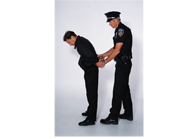March 26, 2014
We returned to the scene of the crime last week, dear old Flatbush Law. Accompanied by The Heir to the Throne, we attended a law school-sponsored lecture at the Brooklyn Academy of Music featuring none other than the Emperor of Originalism himself, Mr. Justice Scalia.
Now in our day, U.S. Supreme Court Justices did not appear at Flatbush Law, nor did they speak with the candor Justice Scalia did, in any venue, for that matter. But this bench is very different. Is all this celebrity good for the Court? We would say so.
Justice Scalia was as a general speaking to the troops; a lawyer’s lawyer preaching the gospel to the emergent pupae. So what if it amounted to “first there was the Word; and the Word was the Constitution?”
Here was a a lawyer who liked what he did. He was excited talking about the law to other lawyers. The material wasn’t dry or old or moribund; it was alive. Justice Scalia, who is very smooth at this, was engaging, open and judicial, all at the same time. Whether we agreed with his reasoning or not, one couldn’t help but be challenged by his mantra that something

could be, all at once, constitutional, but stupid. That limitation on the Court’s judicial power became the catchphrase for the evening. Judges were lawyers, not philosophers.
There were questions from the audience and some were good. The last question, however, was more of a statement. A student feared that three of Scalia’s dissents had fostered hatred of the LGBT community. Without façade, Justice Scalia coldly denied that anybody could draw support for hating anyone from his dissents. The Justice left the stage saying “You’re free to hate whoever you want.” We don’t know exactly what that means, or whether it should bother us.
Speaking of Flatbush Law, we open Dean Prince’s Evidence class this morning with Benavides v. City of New York, 2014 NY Slip Op 01682 (1st Dep’t 3/18/14). In a personal injury action against the City, the question is whether defendant, while being chased during a drug arrest, was pushed over a fence by a police officer or jumped of his own